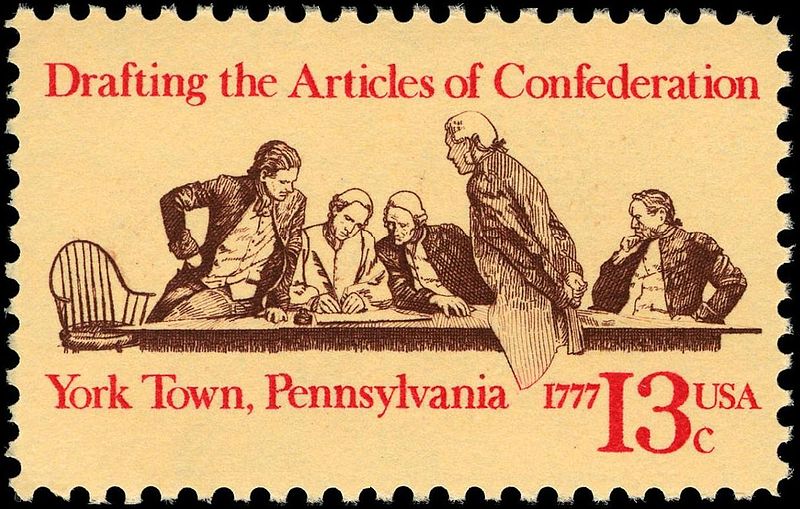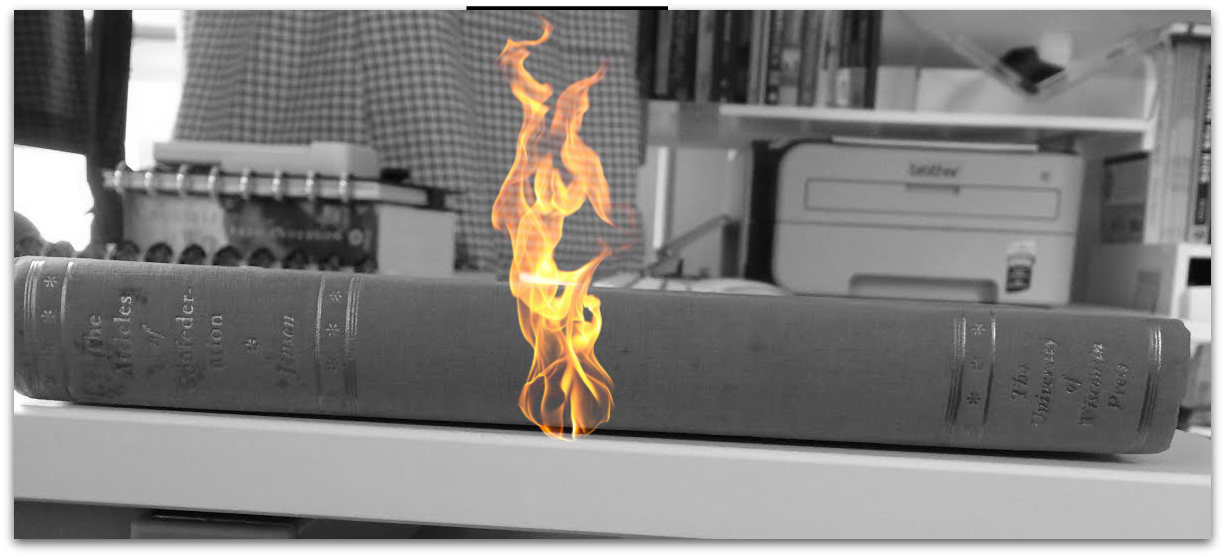 My study of history has become meta.
In an effort to manage my research project on the Articles of Confederation, I committed to thinking and writing about one piece of the historical puzzle I'd like to solve: How did the Articles of Confederation become the United States' forgotten constitution?
My study of history has become meta.
In an effort to manage my research project on the Articles of Confederation, I committed to thinking and writing about one piece of the historical puzzle I'd like to solve: How did the Articles of Confederation become the United States' forgotten constitution?
My strategy for answering this first question involves investigating the history of the early histories of the American Revolution and early United States. At the moment, it's a two-part investigation:
Part one: See whether the early histories mention the Articles of Confederation and if so, what they have to say about it.
Part two: Attempt to better understand why the historians who authored these early histories wrote them the way they did. How did their methodology help determine the inclusion, exclusion, and interpretations of the Articles?
This second part has led my study of history to become meta.
History as Identity
I'm fascinated by American identity. Americans don't have just one identity, they have many. At one level they are American: members and citizens of the United States. At another level Americans are regional. Americans aren't just Americans, they're New Englanders, New Yorkers, Pennsylvanians, Californians, Texans, Southerners, Midwesterners, etc. And you can further subdivide these regional identities into smaller cultural groups.
My scholarship is driven by a desire to figure out how Americans can be at once the same and yet so very different. How do Americans navigate and negotiate their identities as members of local cultural groups and regional communities--identities that often stand at odds with each other across cultural and regional lines-- to also include a national, American identity that unifies them?
History stands as a BIG part of the answer to that question. History builds and sustains nations and people. It's an important part of the glue that holds people and culture together. Along with other humanistic fields such as language and literature, history helps disparate people build and sustain a national identity. History is so important to national identity that the European Union is funding the work of historians to create a national, European history.[1]
In the United States, we've had a nationalistic history from the start and it developed for three reasons:
1. In the 18th-century, Americans and Europeans viewed history as practical. History served as a tool that demonstrated how philosophical teachings worked on the ground, in real life.
2. Early Americans turned to history to explain the American Revolution and War for Independence. How did thirteen colonies rise up and improbably defeat Great Britain? Americans who lived through the events had a hard time understanding the answer to this question so they turned to history to work out and explain what had happened.
3. Early historians used history to affect their agenda: Encourage the next generation to take a stand a build a nation.
The Power of History & Historians
Early historians of the United States used the past to shape the future. They shaped the future of their nation by depicting Americans' stand against Great Britain as a united one and by stressing the need for Americans to unite and remain united as they built their new nation. The historians' projected a clear message: Victory in the War for Independence demonstrated that when Americans stand united they can achieve great feats and accomplish the improbable, like defeating the greatest imperial army and navy in the world.
Early historians achieved their message by glossing over and omitting the thousands of Americans who remained loyal to Great Britain and the thousands more who tried to maintain a neutral position during the Revolution. They also largely passed over the infighting and squabbling that took place within Congress and among the different states, which one can clearly see if they explore the history of the Articles of Confederation.
The selective history of these early historians has had great staying power. The idea that Americans stand united more often than they stand divided is a myth. But it's a powerful myth that helped explain the Revolution and heal the nation after its violent and divisive war.
I have a lot more work on early American histories and historians to do. But my first foray into this small study makes a convincing case that history and historians are powerful. The historians who wrote the first histories of the American Revolution and United States recognized that a people without a common past cannot be a people with a common present.[2] So they took it upon themselves to give their fellow Americans a common history, a history that would propel them forward to build a new nation and hopefully a better future.
Notes
[1] Historians Alix Green (University of Central Lancashire), Markus Putsch (European Parliament), Betty Koed (U.S. Senate Historical Office), Louis Kyriakoudes (Albert Gore Research Center, MTSU), and Paul Pittman (U.S. State Department, Office of the Historian) discussed the need for and the efforts of the European Union to develop a national history to keep the union from collapsing at the 2016 National Council on Public History annual meeting in Baltimore, MD. The title of the panel: "Europe at the Crossroads? Navigating History and Memory at the Sharp Edge of Policymaking"
[2] Milton Klein, "Clio Ascendant: The Writing of American History in the Eighteenth Century," New York History, Vol. 68, No. 1 (January, 1987), pgs 4-26, pg 17.


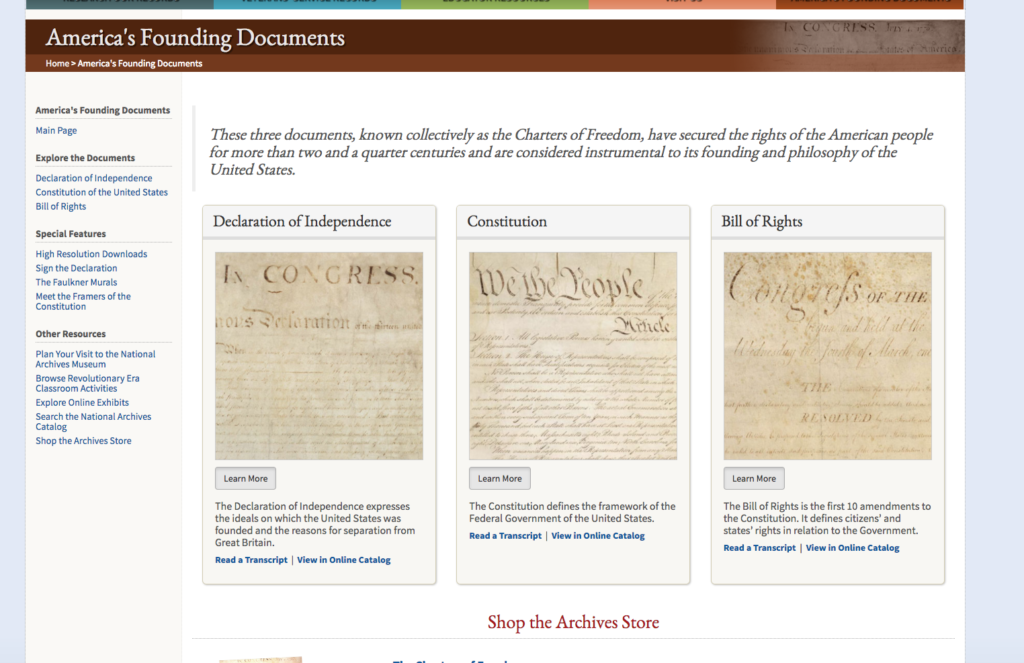
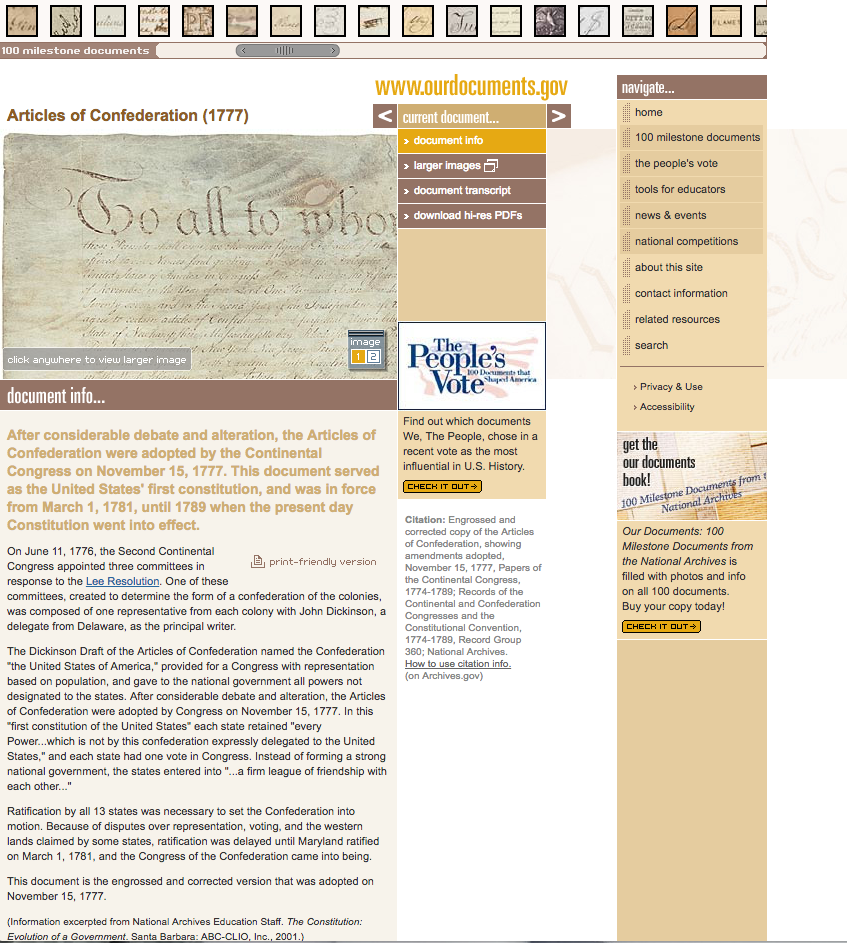
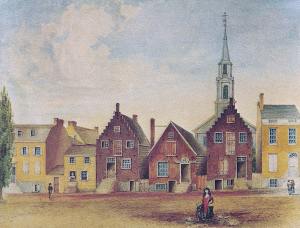 This means my dissertation never had a literature review. Most of the references I made to other scholars occur in my notes, not the main text. And while not perfectly written, my dissertation conveys its ideas with clear writing and active verbs.
This means my dissertation never had a literature review. Most of the references I made to other scholars occur in my notes, not the main text. And while not perfectly written, my dissertation conveys its ideas with clear writing and active verbs. One year ago this week, I shelved my book manuscript. I didn't want to put it aside; I was making great progress. However, good issues and problems due to the quick growth of
One year ago this week, I shelved my book manuscript. I didn't want to put it aside; I was making great progress. However, good issues and problems due to the quick growth of 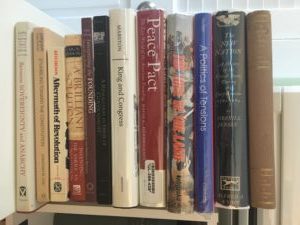 I'm starting work on my next long-term research project: The Articles of Confederation. Over the last year and a half, I've been mining footnotes and steadily accumulating books about the subject. No one has undertaken a serious study of the Articles since Merrill Jensen in 1950.
I'm starting work on my next long-term research project: The Articles of Confederation. Over the last year and a half, I've been mining footnotes and steadily accumulating books about the subject. No one has undertaken a serious study of the Articles since Merrill Jensen in 1950.

